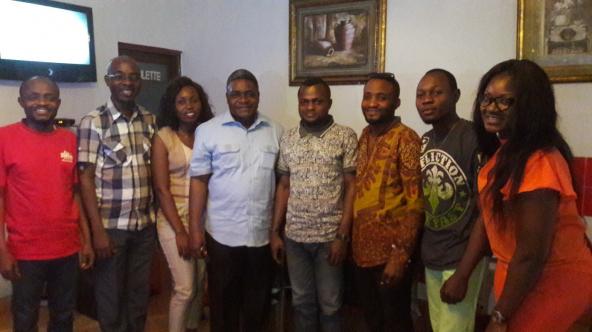
Democratic Republic of the Congo: the abolitionists organize workshops for journalists
Africa
Over the last summer, RADHOMA organized several training courses targeting local journalists. For two months, 8 journalists attended several workshops on the death penalty. Thanks to these workshops, journalists have developed the necessary skills to deliver accurate information and facilitate the debate on the death penalty and its abolition.
A training course aimed at facilitating the debate on the abolition of the death penalty.
Over the last few years, the debate on the abolition of the death penalty in the Democratic Republic of the Congo has not been prolific. To remedy this situation, RADHOMA decided to collaborate more closely with media. RADHOMA identified 8 journalists from different background but already in favor of the abolition and offered to train them during several weeks. During these workshops, trainers addressed essential issues. First, Mr. Baudouin Kipaka Basilimu, Executive Secretary, and Mr. François Mukandila, Journalist Coordinator, defined key notions to explain the arguments against capital punishment, but also the abolition process and the role of journalists in the advocacy process. Thanks to a constructive dialogue, the journalists understood why the abolition of the death penalty was necessary. The advocacy skills of RADHOMA’s speakers even convinced the most reluctant ones after only 4 workshops.
A useful training course for the World Day Against the Death Penalty, but not only.
Thanks to these workshops, members of RADHOMA were able to put the debate on the abolition of the death penalty at the center of the civil society’s discussions. Indeed, members of the network will be the guest of several radio and television shows in Kinshasa and Sud-Kivu. The discussion will mainly focus on this year’s World Day theme (poverty and the death penalty), but also on a report exposing the living conditions of death row prisoners in the country made by RADHOMA’s volunteers.
By drawing the attention of the “4th Estate” to the death penalty, abolitionists wish to bring back the abolition of the death penalty on the political agenda. Although the Democratic Republic of the Congo is abolitionist de facto, authorities have always refused to abolish the death penalty completely. It has based its refusal on the population’s support to the death penalty. “This argument does not rely on any material evidence.” said Baudouin Kipaka Basilimu. The training aims at remedying this unclear situation. Indeed, after raising awareness among the population, journalists will be able to have a more accurate representation of the population’s opinion on the death penalty.
For RADHOMA, this training was only a first step. In the upcoming months, the network will organize other trainings targeting journalists, but not only. The network would like to train and discuss with other members of the Congolese society in order to facilitate negotiations aimed to abolish the death penalty. RADHOMA is currently designing workshops targeting magistrates and members of the military. These workshops will emphasize the inconsistencies of the Congolese criminal justice system which forces judges to sentence individuals to death. Building on the success of the latest training, RADHOMA remains focused on its main purpose: a complete abolition of the death penalty in the country.






